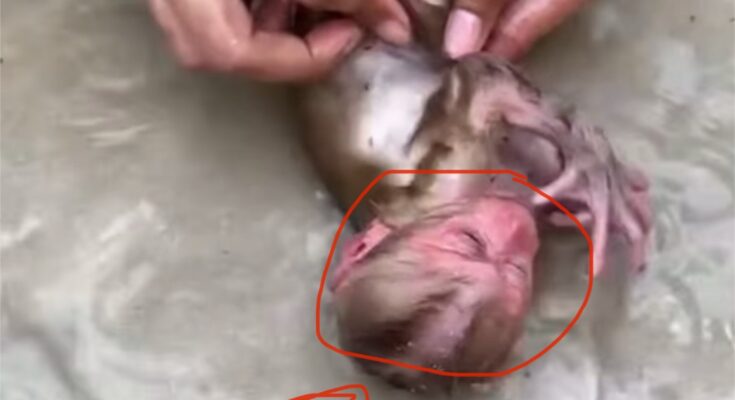Caring for a newborn monkey is delicate work, and even small threats—like ant bites—can cause stress for both the infant and the caregiver. Newborn monkeys have extremely sensitive skin and immature immune systems, which means even a minor insect bite can become painful or lead to complications if not handled properly. Whether you are a wildlife rehabilitator, a primate caretaker, or someone temporarily responsible for an infant monkey, knowing how to respond quickly and safely is essential. Here is a practical, gentle guide on what to do when a newborn monkey is bitten by an ant.
1. Stay Calm and Move the Infant to Safety
If you notice ants on or near the baby monkey, your first step is to move the infant away from the source immediately. Stay calm and handle the newborn gently to avoid causing additional stress. Inspect the surrounding bedding, enclosure, or nest for ant activity and remove the monkey to a clean, safe, warm spot.
2. Remove Any Remaining Ants
Carefully check the monkey’s fur and skin for any ants that may still be crawling. Avoid brushing too hard; instead, lightly lift the ants off using your fingers or a soft cloth. Newborn monkeys have extremely fragile skin, so gentle handling is crucial.
3. Check for Bite Reactions
Once the infant is ant-free, inspect the affected area. Ant bites on a newborn are often marked by small red bumps, swelling, or signs of irritation. Some species of ants can deliver painful or inflammatory bites that may cause more noticeable swelling. Monitor the monkey’s behavior as well—excessive crying, restlessness, or difficulty nursing may be signs of discomfort.
4. Clean the Area Gently
Use a clean, soft cloth dampened with lukewarm water to clean the bite site. Do not use harsh soaps, alcohol, or human topical creams, as these can irritate the skin or be toxic to primates. A mild saline solution (saltwater) is usually safe and effective for cleaning minor wounds.
5. Apply a Safe, Vet-Approved Treatment
Never apply human medications without professional guidance. If you are in a rescue center or sanctuary, use only treatments approved by a qualified veterinarian. A mild, vet-recommended antiseptic suitable for infant primates can help reduce irritation and lower the risk of infection. If you do not have access to one, simply keep the area clean until veterinary advice is available.
6. Watch for Signs of Allergic Reaction or Infection
Redness that spreads, increasing swelling, pus, fever, lethargy, or refusal to feed can indicate infection or an allergic reaction. Ant bites are usually minor, but newborn monkeys are vulnerable and may react strongly. Seek veterinary care immediately if symptoms worsen within a few hours.
7. Prevent Future Incidents
Finally, address the cause. Clean the enclosure thoroughly, remove food scraps that attract ants, and place the nest or bedding in a location protected from insects. Using natural, primate-safe barriers—such as water moats under table legs or careful habitat design—can help keep ants away without exposing the newborn to chemicals.
By staying calm, responding quickly, and prioritizing the infant’s safety and comfort, you can protect a newborn monkey from complications caused by ant bites and ensure it remains healthy and stress-free.



